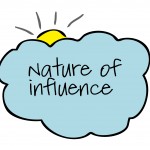Exploring Influence
There is a lot of talk about people in local communities being able to influence the decisions that affect their lives. Less talk about what this might actually mean in practise. It’s really helpful to begin this conversation and think about how it can become a reality!
‘Influence’ can be interpreted – and understood differently – at different times, in different contexts and by different people.
The table below shows some of the things that other people have said when asked about influence. Their responses make it clear that influence can be about outcome, quality/attribute or method/approach. Have a look and see if the same happens for you.
| Outcome – What happens as a result of influence? | Quality/Attribute – What helps us to influence? | Method/Approach – Ways we influence? |
| Make things better | Authority | Guide |
| Make a difference | Power | Enable |
| Get someone to do something for you | Charisma | Empower |
| Have an effect | Respect | Power |
| Make someone do something they may not want to do at the beginning | Reputation | Encourage |
| Being heard | If you are ‘experienced’ you are more influential | Coax |
| Find out what’s happening | Be a ring leader | Set an example |
| Change things | Get something going | Catalyse |
| Have a voice – more people join | Start something off | Instigate |
| People have power over us | Be a catalyst, make something happen, like a chemical reaction | Demonstrate |
| Magnetism | Have connections | |
| Pressurise – physical, verbal, mental | ||
| Controlling – bullying | ||
| Negotiate | ||
| Bargain | ||
| Enforce | ||
| Persuade | ||
| Coerce |
Why influence?
There are many reasons why community groups want to influence to change systems, policies and processes:
- to improve the quality of life for local communities
- open up opportunities for ourselves and others
- empower local people to make their voices heard
- make ‘em listen to what we are saying rather than just nodding
- raise awareness of the needs of local people and how those needs might best be met
- to get our issues to the top of agendas
- to have choices
- be part of the decision making process
- be taken into account
- change the culture in which decisions are made
- change thinking and find new ways to do things
What prevents us from feeling influential?
To help us understand how to be more influential, we asked a group of young people to tell us about some of the things that stop them from being influential. They told us:
…about their own levels of confidence, skills and knowledge and their ‘sense of self’
- Being weak/vulnerable
- Lack of confidence
- Lack of information
- Pride
… about feeling isolated, excluded, discriminated against and powerless
- Bullying Signs – telling us what we can and can’t do
- People are too “up themselves”
- Age – voting Law
- Not being listened to
- Intimidation from the police
… about the lack of ‘strength in numbers’
- Not enough willing people to help and about authorities that are bigger than them!
- Death!
- Government

